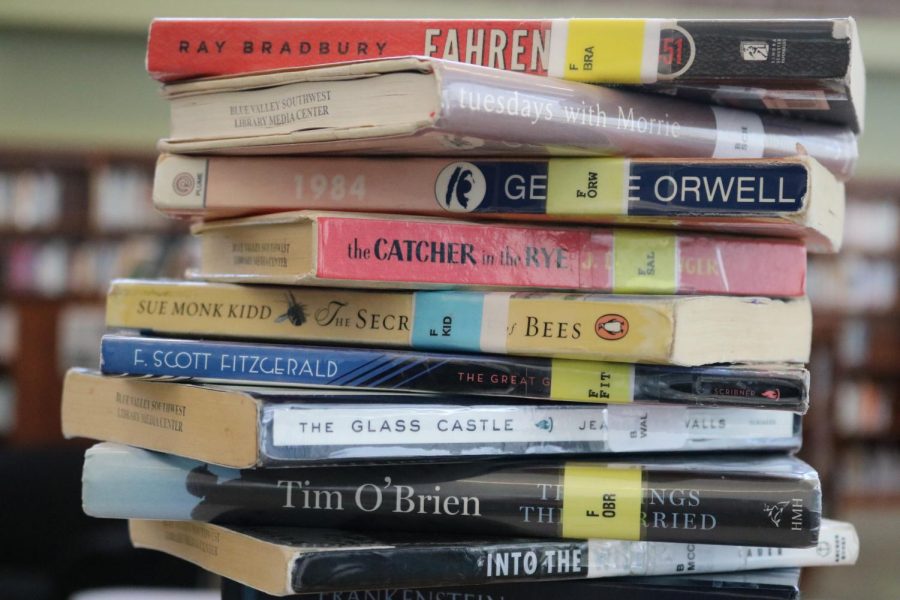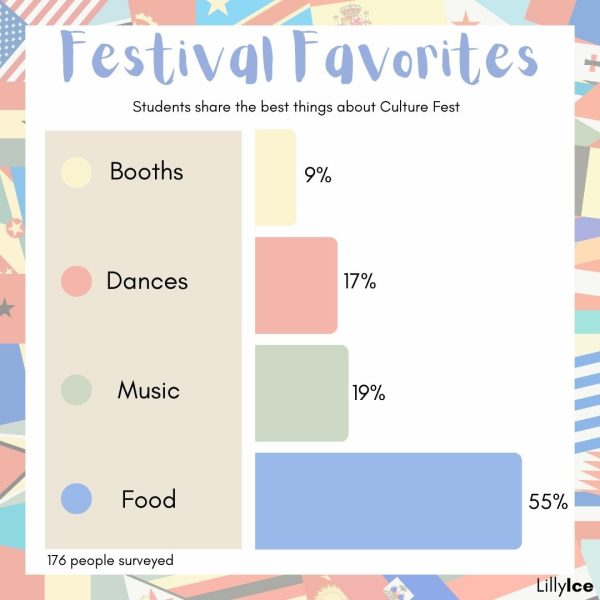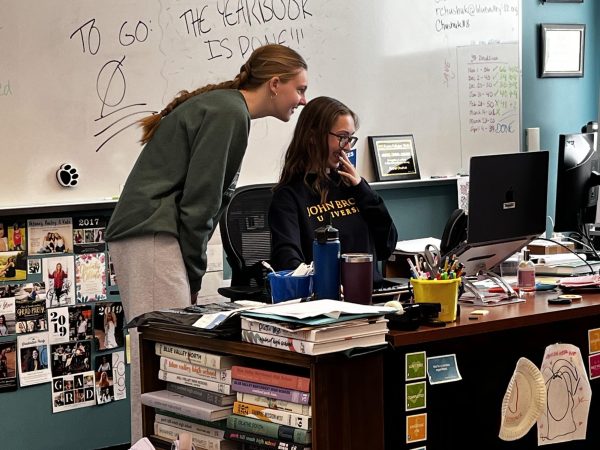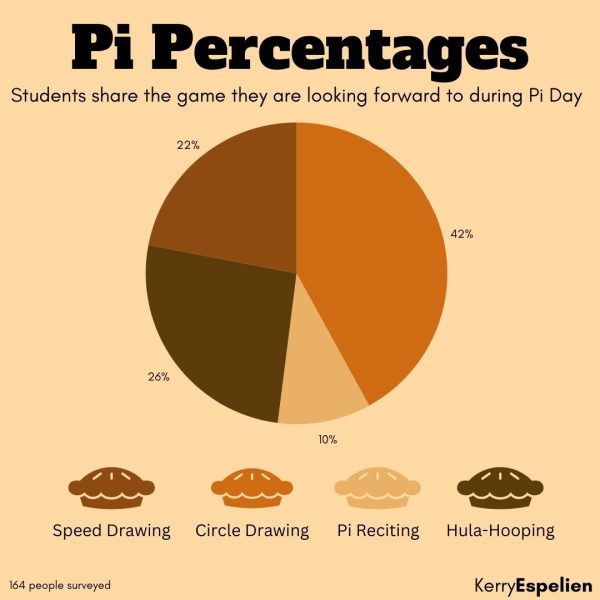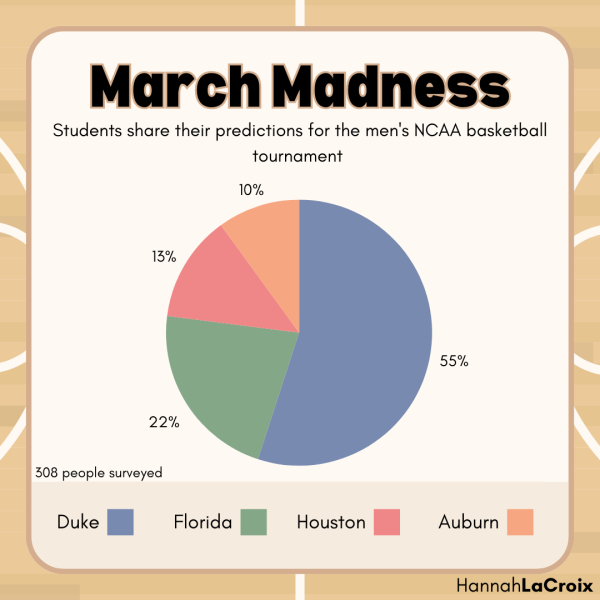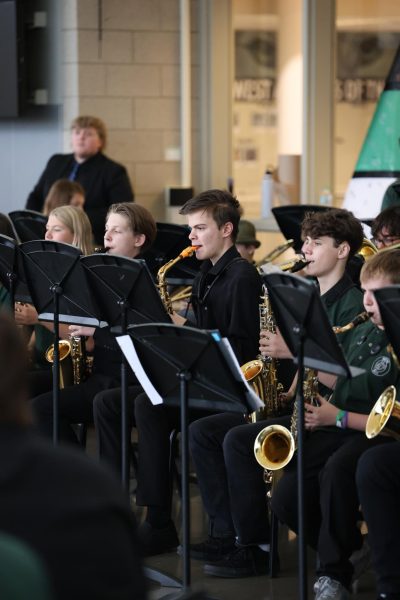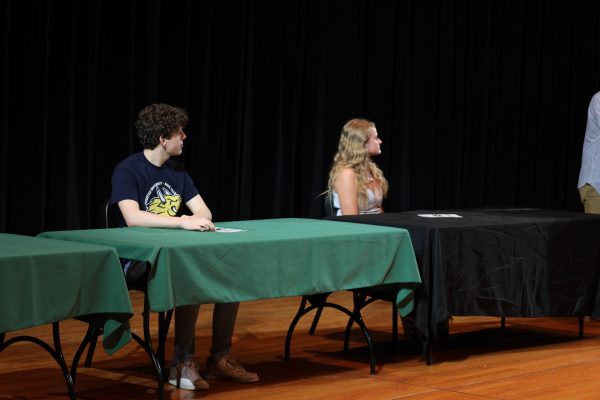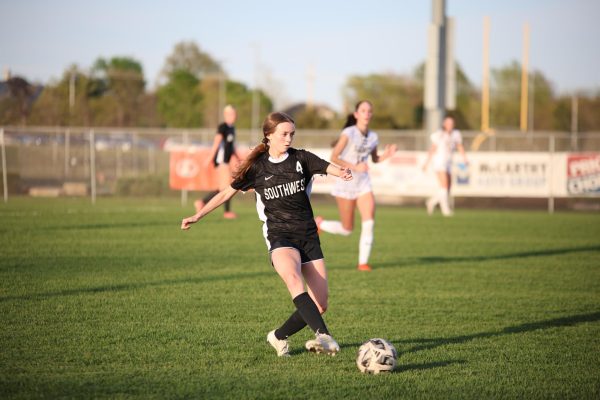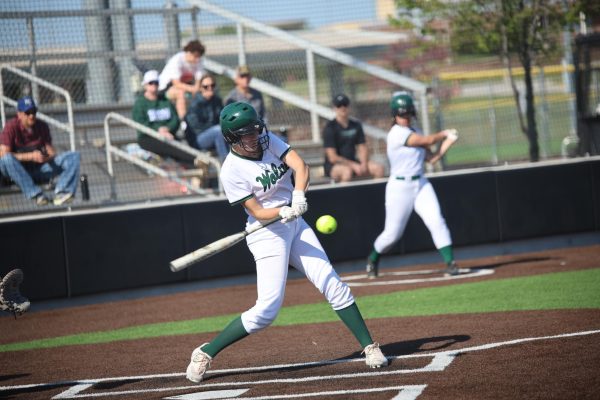Literature Lowdown: Students and staff discussed assigned ELA novels
Among the superfluous complaints of students which litter the hallways of high schools across the country, books and excerpts which must be read for English and reading classes are among the most notorious.
What follows is a host of papers that have to be written over the book, in addition to Socratic seminars, projects, worksheets and other assignments related to the assigned reading. For some students, these assignments are like clockwork, whereas for others, they are torture. English Language Arts department chair Shauna Rinearson said there is a system in place to help choose the titles students read.
“We have a lot of people who teach the same class and so for quality control purposes, this district has a much more regimented approach to the long works that we read, or are allowed to read in our classes,” Rinearson said. “Each grade level has a list of approved books. That means approved by the school board — the school district — those are the only long works, so book length works, that we are allowed to teach at a given grade level.”
However, teachers are not only restricted by the district’s 4600 policy, but by limited amount of copies that each school has in stock.
“We have to have copies here in our building to supply to the students. We don’t have 300 copies of every book on the list,” Rinearson said. “We are restricted by the approved book list, and then we are also restricted by available resources.”
In relation to the actual content of the books that are readily supplied, sophomore and senior English teacher Michael Watson said the book “Fahrenheit 451” by Ray Bradbury, is important for students in his sophomore English class to read in connection to understanding the books that are assigned in ELA and why.
“Even though the books that we have in our classes have been there a long time, there’s something valuable in books like ‘Fahrenheit 451,’ that will always be relevant, because people are always wanting to take shortcuts with the way they consume information,” Watson said. “You’d rather just read a headline than read a whole article, and that’s something that was happening in the 1950s, and that’s something that’s still happening today.”
Watson said he thinks his students understand, for the most part, why indulging in the literature that is taught in class is important.
“I think students realize that there’s probably value in the morals of the story or the themes of what we can learn from the book,” Watson said. “Also, I hope that we do a good job of telling them that if it looks kind of controversial, that means it’s probably engaging.”
Controversial books are read throughout all four years of high school. However, books with heavier content such as “The Things They Carried,” “Slaughterhouse-Five,” “The Lords of Discipline” and others, are reserved for junior- and senior-level students and sometimes exclusively Advanced Placement students.
Senior AJ Lenartowicz read “The Things They Carried,” a book focusing on the lives of multiple soldiers in a platoon in Vietnam, with his AP English Language & Composition class last year.
“They had a certain kind of viewpoint on the war in Vietnam, but it’s important to hear that and also, it’s OK to disagree with it,” Lenartowicz said. “But there’s no problem in reading it so you’re just more educated and can make a better opinion.”
Originally, “The Things They Carried” wasn’t on the district’s approved book list, until Rinearson got it approved at the district level.
“I had difficulty getting ‘The Things They Carried approved,’” Rinearson said. “It took me three years to get the approval at the district level and the books purchased here. Not because the content in the book is so controversial or sensitive, but because the people that I needed help from at the district-level office felt like the board would not be willing to approve new books to add to our approved list.”
Most students like Lenartowicz have their various critical opinions about the books, despite comprehending the main themes behind them.
“I have not enjoyed most of the books. I find them boring to be honest. Except for ‘The Lords of Discipline,’ which I think has been the most interesting book,” Lenartowicz said. “Some books like ‘Catcher in the Rye’ weren’t horrible, I thought, but there was nothing exciting, which I kind of look for. In ‘Lords of Discipline,’ there are definitely exciting parts.”
Some students enjoy reading of the allotted material in class, and many, like Lenartowicz, have a favorite book they have had to read for a class in high school, such as sophomore Logan Garber who took Honors English 9 last year.
“‘House on Mango Street’ was pretty good; I thought it was interesting. ‘Anthem’ was interesting and weird because Ayn Rand, her philosophy is really different,” Garber said. “We read ‘To Kill A Mockingbird’ as well and I loved it.”
However, some books may be deemed too inappropriate for a student to read by his or her parents or guardian even after it has been approved by the district and at the school level. Therefore, the BV 4600 policy is in place to let parents know that they can request an alternative reading option for their child and eventually the teacher and parent can find a comparable replacement to fit the main theme of the unit or lesson being taught in the class.
“For AP English, Language & Composition, I sent home the 4600 letter that says, ‘We will read ‘The Great Gatsby,’ ‘The Things They Carried,’ and — time permitting — ‘The Glass Castle’ in this course,” Rinearson said. “This is to let you know that every book on our approved district list has a rationale that is kept by the district, as a consumer of our education you’re welcome to read the rationale for yourself.”
Exciting or boring, controversial or tame, a quick read or a long one, reading is a fundamental part of school and one that ELA instructs students to better comprehend as well as elaborate on with composition.
“I hope that somewhere, kind of deep in the back of their mind, [stuents] recognize the value in reading about something that they can relate to,” Rinearson said. “I hope that they can value learning about something they otherwise wouldn’t know anything about.”


